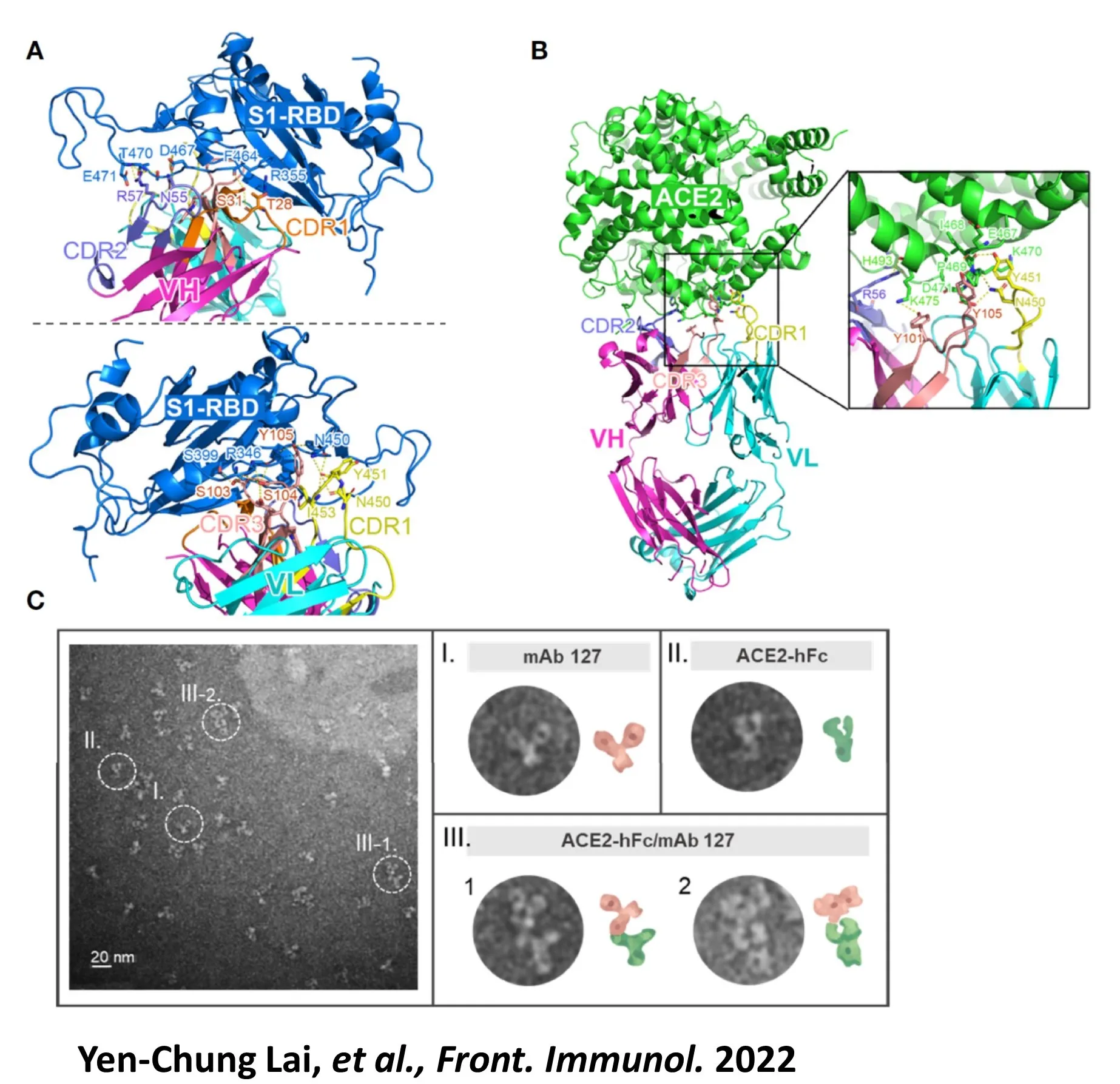Infection of SARS-CoV-2 can often result in several non-respiratory organ damages, including the heart, the liver, kidneys, or the brain. The pathogenic mechanism of this virus remains unknown, and it is still unclear whether the virus causes damage directly or indirectly through immune escape. Antibody levels against ACE2 are directly associated with the severity levels of the COVID-19 disease, and studies have reported that patients with COVID-19 developed these autoantibodies.
A study carried out by Leadgene Biomedical first identified the antibodies against ACE2 in COVID-19 patients, and then found a positive correlation between the amounts of antibodies against ACE2 and S1-RBD. To further confirm the cross-reactivity of ACE2 and S1-RBD, we immunized either mice or rabbits in separate trials with recombinant S1-RBD proteins, and it was revealed that high levels of anti-S1-RBD antibodies was correlated with anti-ACE2 activities. Two monoclonal antibodies composed of both S1-RBD and ACE2 were then generated from these S1-RBD-immunized mice. Biacore’s measurement of binding affinities were subsequently taken, and they indicated that the binding of these two antibodies to S1-RBD was stronger than the binding to ACE2.
Epitope mapping using the combined techniques of synthetic overlapping peptides and hydrogen-deuterium exchange mass spectrometry (HDX-MS) revealed that the two monoclonal antibodies recognize S1-RBD by the presence of six different amino acid residues of P463, F464, E465, R466, D467, and E471. In addition, Western blotting analysis demonstrated that monoclonal antibodies recognize ACE2 by their conformational epitopes. This study along with past studies suggest the existence of potential antigenic cross-reactivity between S1-RBD and its receptor ACE2.

Original article: Antigenic Cross-Reactivity Between SARS-CoV-2 S1-RBD and Its Receptor ACE2
